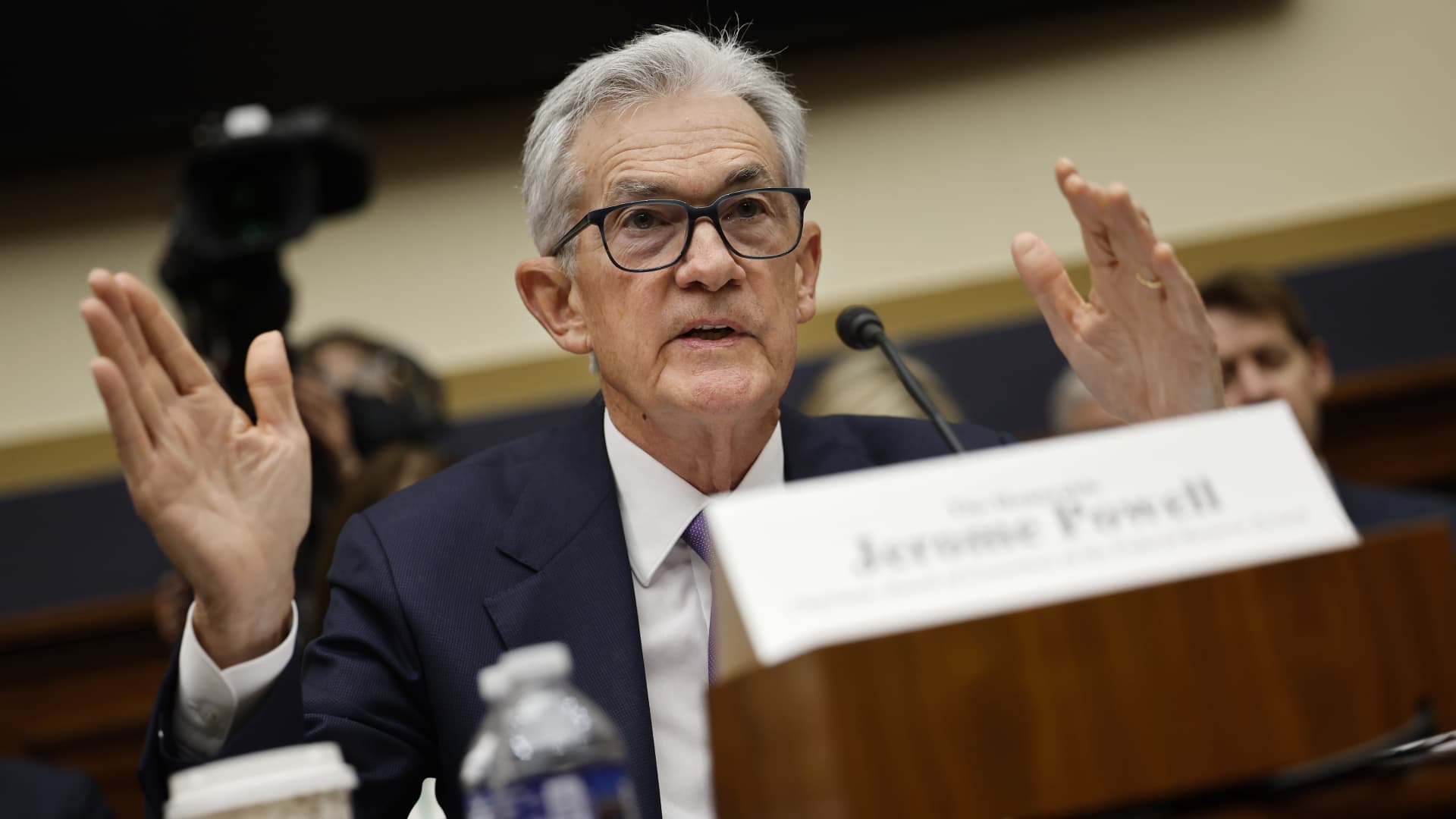
Federal Reserve Chair Jerome Powell Addresses Inflation and Interest Rates
On March 6, 2024, Jerome Powell, the Chair of the Federal Reserve, provided testimony to the House Financial Services Committee at the Rayburn House Office Building in Washington, DC.
In his address before the Senate Banking Committee, Powell reiterated the Federal Reserve’s steadfast commitment to reducing inflation. He emphasized that the central bank is not in a hurry to lower interest rates. Powell described the current state of the economy as "strong overall," highlighting a "solid" labor market and a gradual decline in inflation, which, however, remains above the Fed’s target of 2%.
Given these circumstances, Powell indicated that there is no immediate need for the Federal Reserve to lower monetary policy settings. "With our policy stance now significantly less restrictive than previously and the economy maintaining its strength, we do not need to rush to adjust our policy stance," Powell stated. He cautioned against hastily reducing policy restrictions, which could jeopardize progress on controlling inflation, while also warning that too slow a reduction could weaken economic activity and employment.
These remarks were part of Powell’s first of two Capitol Hill appearances this week, where he will address both the Senate Banking Committee and the House Financial Services Committee. The discussions largely focused on banking supervision rather than monetary policy.
Senator Elizabeth Warren, a prominent Democrat from Massachusetts, raised concerns that President Trump’s efforts to curtail the Consumer Financial Protection Bureau (CFPB) left consumers without proper oversight concerning the nation’s largest banks. When pressed about who oversees consumer compliance in the absence of the CFPB, Powell stated, "I can confidently assert that no other federal regulator is in that role," but affirmed that the overall banking system remains secure.
Powell’s commentary on monetary policy aligned with recent positions taken by him and his colleagues, who are currently navigating several fiscal and monetary factors in an unstable environment. Notably, Trump has begun an aggressive push to impose tariffs on major U.S. trading partners, purportedly to create a fair economic landscape and achieve foreign policy objectives relating to issues like illegal immigration and drug trafficking, particularly concerning fentanyl.
While Powell did not specifically address these tariffs in his prepared remarks, he was expected to encounter inquiries on the topic during his testimony. He reiterated that the Federal Reserve does not engage in fiscal policies. He stated, “The conventional wisdom regarding free trade still makes sense. However, it poses challenges when dealing with a significant country that does not adhere to the rules.” Moreover, he clarified, “It’s not the Fed’s role to formulate opinions on tariff policies; that’s the responsibility of elected officials. Our duty is to respond thoughtfully and to shape monetary policy to meet our mandate.”
Market analysts interpreted Powell’s recent statements as an indication that the Federal Reserve will likely keep interest rates stable into the summer, following a 1% reduction in its benchmark borrowing rate late in 2024. Currently, the federal funds rate is maintained within a range of 4.25% to 4.5%, allowing for flexibility. The Federal Open Market Committee opted to retain this rate during its most recent meeting in late January.
Powell also highlighted the Fed’s awareness of the potential risks to its dual mandate, expressing confidence that the existing policy is appropriately calibrated to address the uncertainties ahead.
After taking office, Trump expressed a desire for immediate interest rate reductions but later voiced agreement with maintaining current rates. Treasury Secretary Scott Bessent clarified that the administration is primarily focused on lowering the 10-year Treasury yield, which affects long-term rates more significantly than the Federal Reserve’s decisions, which primarily influence short-term rates.
Despite recent cuts in the Fed’s rates, mortgage rates have remained high. Powell remarked, "While mortgage rates have not fallen, their levels are more closely tied to long-term bond yields, particularly the 10-year and 30-year Treasuries, rather than Fed policies." He suggested that if the Fed maintains its lower rates, there may be a future opportunity for mortgage rates to decrease, although the timing for such a shift remains uncertain.









